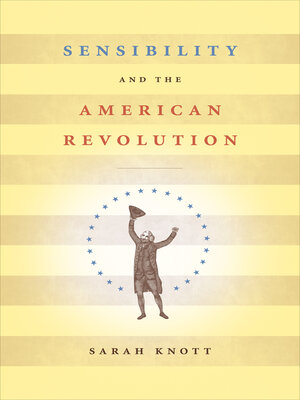Sensibility and the American Revolution
ebook ∣ Omohundro Institute of Early American History and Culture and the University of North Carolina Press
By Sarah Knott

Sign up to save your library
With an OverDrive account, you can save your favorite libraries for at-a-glance information about availability. Find out more about OverDrive accounts.
Find this title in Libby, the library reading app by OverDrive.



Search for a digital library with this title
Title found at these libraries:
| Library Name | Distance |
|---|---|
| Loading... |
In the wake of American independence, it was clear that the new United States required novel political forms. Less obvious but no less revolutionary was the idea that the American people needed a new understanding of the self. Sensibility was a cultural movement that celebrated the human capacity for sympathy and sensitivity to the world. For individuals, it offered a means of self-transformation. For a nation lacking a monarch, state religion, or standing army, sensibility provided a means of cohesion. National independence and social interdependence facilitated one another. What Sarah Knott calls “the sentimental project” helped a new kind of citizen create a new kind of government.
Knott paints sensibility as a political project whose fortunes rose and fell with the broader tides of the Revolutionary Atlantic world. Moving beyond traditional accounts of social unrest, republican and liberal ideology, and the rise of the autonomous individual, she offers an original interpretation of the American Revolution as a transformation of self and society.
Knott paints sensibility as a political project whose fortunes rose and fell with the broader tides of the Revolutionary Atlantic world. Moving beyond traditional accounts of social unrest, republican and liberal ideology, and the rise of the autonomous individual, she offers an original interpretation of the American Revolution as a transformation of self and society.







